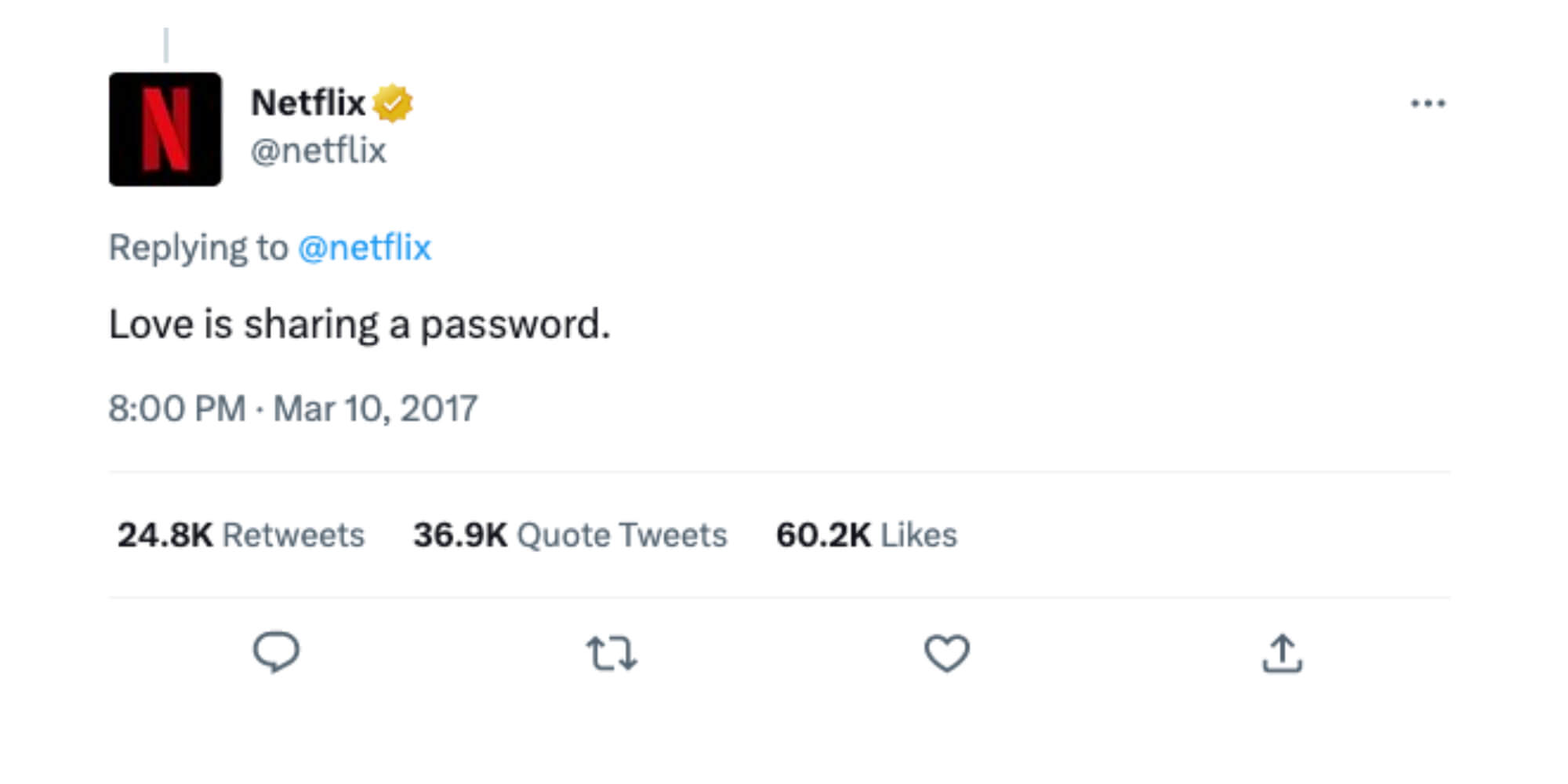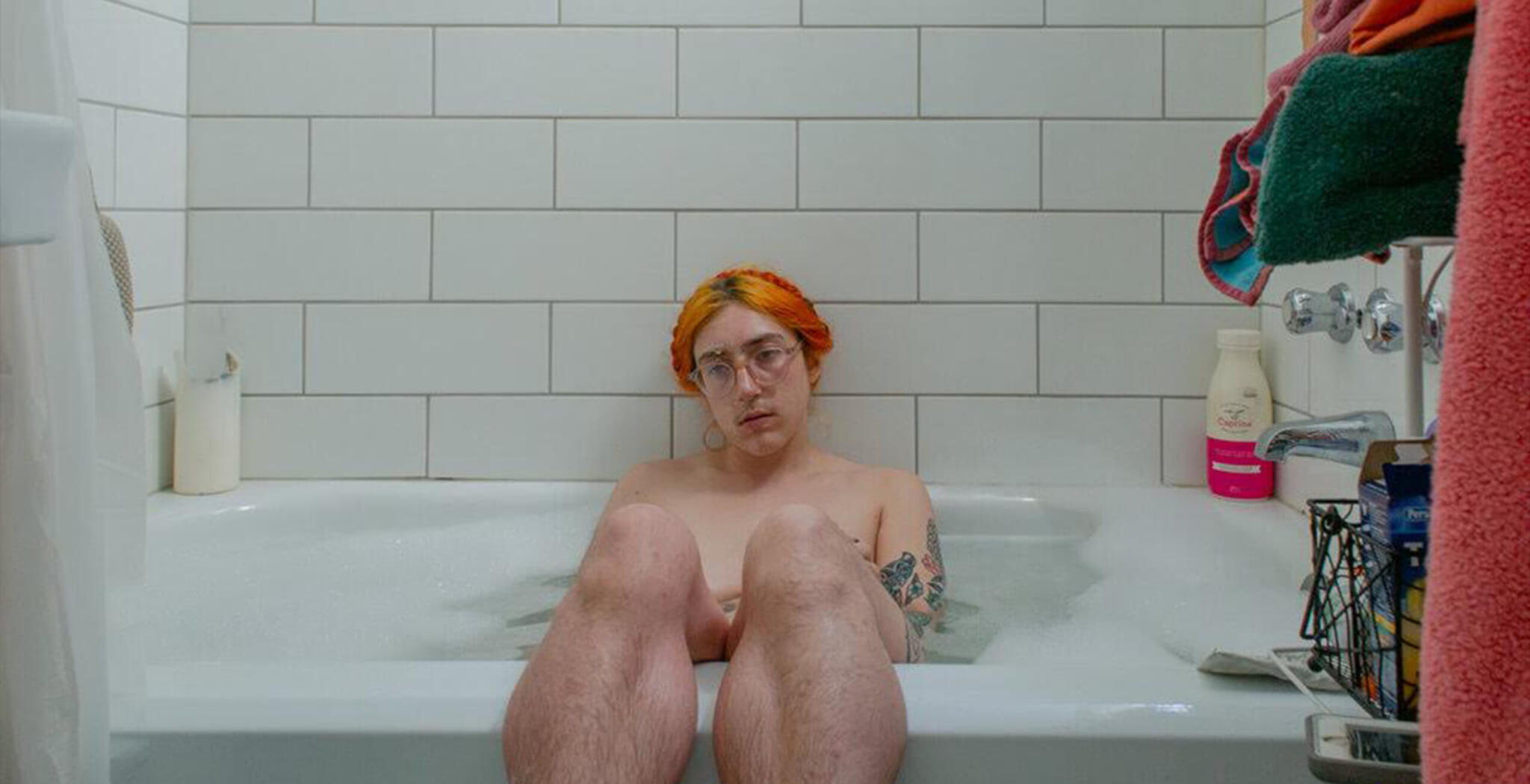Why don’t we feel guilty if we share our Netflix password?
Netflix’s recent crackdown on password sharing has sent binge-watchers into a state of turmoil, but why should we be surprised? Isn’t it morally wrong to share our passwords in the first place? Let’s delve deeper into this issue and examine why we don’t feel guilty about it.
While the initial questions may seem straightforward, there are underlying queries that warrant further exploration. Are we ethically obligated to keep our passwords private and refrain from sharing them with others? Should we feel morally obligated to share our passwords with those in need? And, perhaps most importantly, are we ethically obliged to support companies and help them turn a profit, even when their rules are continually adjusted in their own favor?
Initially, Netflix led us to believe that they endorsed sharing passwords with friends and loved ones. In March 2017, Netflix even tweeted, “Love is sharing a password.” However, on Valentine’s Day in 2023, sharing a password no longer receives any love or support.
The key lesson here is that seemingly friendly social media accounts do not make legally binding statements on behalf of billion-dollar corporations. Instead, they aim to keep us engaged and satisfied. Yet, we mistakenly treated Netflix’s social media words as an everlasting and unbreakable promise.
But love and goodwill are subject to change when faced with competition. As other streaming platforms gained prominence, Netflix’s prosperity dwindled. Shareholders began demanding higher revenues, and Netflix found itself in a tight spot.
The act of sharing and selling passwords has become the face of content piracy, resulting in an estimated loss of $9.1 billion in revenue across all streaming platforms. Although cracking down on password sharing won’t magically replenish Netflix’s coffers, this significant sum highlights the formidable crisis facing the entertainment industry.
This brings us back to one of the earlier questions: Do we have a moral duty to ensure Netflix’s profitability? Sharing your password undoubtedly diminishes Netflix’s profits, preventing potential reinvestment in more content, ideally of higher quality. Such arguments exemplify classical economic liberalism, suggesting that increased profits for Netflix will lead to a happier society. However, this perspective fails to acknowledge the limited competition in the streaming landscape. It resembles an oligopoly, with a handful of dominant players boasting seemingly infinite financial resources.
Stopping password sharing would likely benefit Netflix shareholders rather than society as a whole. Netflix and other streamers fooled us into perceiving subscription services as private goods, something exclusive for personal use with the ability to exclude others. However, on closer inspection, a subscription service functions more like a public good. While not as essential as national defense (although opinions may differ), national defense cannot be easily shared and enjoyed by others. Therefore, we may feel morally obligated to share our passwords rather than withhold them. Streaming content is not a finite resource like a pizza that would leave us hungry if shared. Instead, sharing your password adds the benefit of generosity, allowing you to feel like a Good Samaritan and providing someone else to discuss your favorite shows with. Sharing your account doesn’t diminish your enjoyment of shows like Stranger Things; it merely enhances the communal experience.
Sooner or later, and current trends suggest it will be sooner, Netflix will likely find ways to make password sharing inconvenient enough for subscribers to reconsider. As consumers, we can always vote with our wallets and choose alternatives. Sharing passwords, therefore, is not an obligatory duty; it remains voluntary. And even if content creators question the morality of sharing passwords to access their content, it can be justified as enabling our less financially fortunate friends to engage in cultural participation. The upcoming response from subscribers to this crackdown on passwords will reveal whether the majority realizes that the content might not be worth the subscription cost. This loss, far more impactful than lamenting $9.1 billion in revenue, will be the ultimate blow to Netflix and other streamers.



























